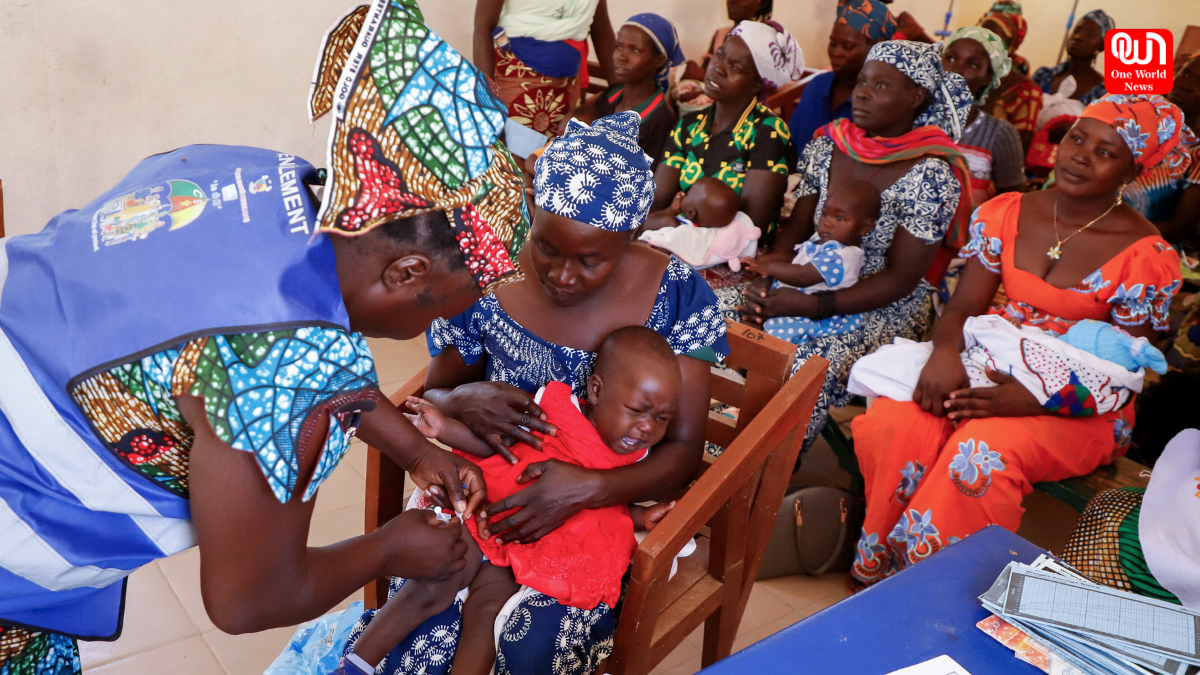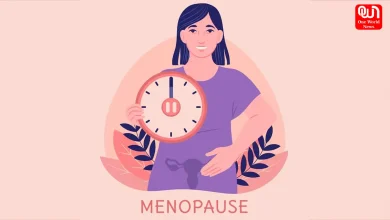The Expansion of Malaria Vaccination in Africa: A Major Milestone in the Fight Against Child Mortality
Cameroon leads in malaria vaccination efforts, marking a 13% drop in child deaths across 17 African countries, a critical step in malaria prevention.
Cameroon’s Malaria Vaccine Rollout Sparks Hope Across Africa: 13% Decline in Child Mortality Marks a Major Breakthrough in Global Fight Against Malaria
In January 2024, Cameroon became one of the first countries to introduce the routine malaria vaccination into its childhood immunization program. This has been one of the most important steps in the fight against malaria to date. Already, this program has recorded good economic benefits in terms of early screening, early treatment for malaria, and admission interventions leading to about a 13% reduction in all-cause child deaths in 17 countries, pointing to the substantial contribution of malaria to child mortality. With Africa carrying nearly 70% of the malaria burden in the world, the introduction of malaria vaccines in Africa would be another important step in combating one of the greatest killers on the continent.
Seventeen African countries are currently integrating malaria vaccines into their national immunization programs, including high malaria transmission countries such as Burkina Faso, Sierra Leone, Benin, Liberia, Côte d’Ivoire, South Sudan, and Mozambique, among others. By 2023, well over 12 million doses of the malaria vaccine have been distributed in these countries with support from Gavi, the Vaccine Alliance, and UNICEF, all of which have collaborated to succeed in securing financing and delivery.
The rollout of the vaccination across these countries has been a notable milestone in the fight against malaria, with the RTS,S malaria vaccine first recommended by the World Health Organization (WHO) in 2021. Following the successful pilot programs in Ghana, Kenya, and Malawi, in which the vaccine proved significantly beneficial in drastically reducing mortality due to malaria, the WHO went ahead and expanded its recommendation, and the two vaccines against malaria, RTS,S and R21/Matrix-M, have been made available for endemic use around the globe.
The success of these vaccines extends far beyond what is expected. They are supposed to save tens of thousands of young lives every year. The introduction of the malaria vaccine in Ghana, Kenya, and Malawi has already led to an amazing 13% decrease in child deaths from all causes, demonstrating the effectiveness of the vaccine in reducing overall child mortality in malaria-prone areas. Now, with the access of over 3 million children in these countries to this vaccine, its continued scale-up is anticipated to transform national public health systems.
The number of children who will get malaria vaccines in the coming years will surely include many more. In 2025, for instance, an extra eight countries are expected to come on board and introduce the malaria vaccine routine into their childhood immunization programs. Furthermore, according to reports, 13 of the countries have already received Gavi funding to add their efforts toward the expansion of vaccines to reach more children, thus heralding a steady rise in average global coverage.
To this end, the WHO initiated the new AMVIRA initiative at the beginning of 2024 called Accelerating Malaria Vaccine Introduction and Rollout in Africa. This initiative pledges provision of technical assistance and coordination to all member countries on how best introduce malaria vaccines within their own contexts. To date, AMVIRA has already provided targeted support in areas like data monitoring, vaccine tracking, and, most importantly, community outreach: all essential avenues for optimizing the benefits of vaccination programs.
Read more: Not So Refreshing? The Potential Negative Effects of Cold Water
The success of distributing over 12 million doses of malaria vaccine in 2023 is evident under the delicate coordination introduced between UNICEF, Gavi, national health ministries, and manufacturers. UNICEF plays the lead role in forecasting vaccine needs, ensuring that supplies are timely and securely delivered and creating anchor support for countries to manage stocks as well as fight wastage. Thus measures have been put in place to help ensure there is no disruption in the availability of vaccines, facilitating the undisturbed rollout of immunization campaigns.
Health workers, one of the primary arms of the vaccine distributive forces, played a novel role in coming up with the success of the program. In countries like Sierra Leone, health workers have already expressed energetic excitement and optimism over the arrival of malaria vaccines, while their direct engagement with local communities helps to build trust and demand for vaccinations, which is important for the uptake of the vaccine itself. For example, in Sierra Leone, Hawa Bayoh, a nurse in charge, who works in immunization at a neighborhood health center called Waterloo, has made comments about the level of excitement associated with the new introduction of the vaccine, mentioning its significant benefits for children in the area.
Additionally, peer-learning workshops organized in 2024 by the WHO have further enhanced activities by facilitating the sharing of best practices among countries. It offers the opportunity for government officials from various countries to learn from one another, discussing the respective challenges and methods they are employing to run successful malaria vaccination campaigns. Continuous efforts of these workshops toward positive collaboration and knowledge sharing will contribute significantly to achieving success in malaria vaccine rollouts across Africa.
Read more: Secrets Behind Whitening Treatments You Should Know
The participation of communities itself is the major component of an effective vaccination program. Good communication in the people’s language and involving local leaders familiar to the people are critical for discussing the concerns and benefits involved in immunization. Benin employed mass media campaigns and storytelling approaches to fight falsehoods and raise awareness on the adoption of the first malaria vaccine rollout on World Malaria Day in April 2024.
Also, even with some of the most serious setbacks, including continuing health emergencies or wars, commitment to malaria vaccination has been unbroken. At first, most deprived conditions pertain to the Democratic Republic of Congo (DRC), whose ongoing mpox outbreak has not hampered the introduction of the malaria vaccine into Kongo-Central province, where the lives of over 170,000 children will be saved each year. In addition, Sudan has been able to add the malaria vaccine to its prohibitions despite ongoing conflict, becoming the first country in the WHO Eastern Mediterranean Region to introduce this vaccine.
To ensure maximum benefit, malaria vaccination campaigns are being launched together with other proven malaria interventions under the radar like insecticide-treated nets, chemoprevention, and indoor residual spraying. These interventions are strategically combined to provide tailored solutions to address the local needs of communities and maximize protection. For instance, Chad is introducing the malaria vaccine together with the pneumococcal disease and rotavirus vaccines to strengthen its commitment to child health.
High-impact malaria vaccination programs are implemented side by side with other proven malaria control strategies, such as by having insecticide-treated nets, chemoprevention and indoor residual spraying. Countries are purposely mixing these interventions so that the designs herewith are suited to local needs while satisfying maximum protection by synergizing approaches. For instance, Chad has introduced the malaria vaccine with those for pneumococcal disease and rotavirus, thereby enhancing commitment to child health.
All persistent funding will be required to further extend malaria vaccine access. Gavi, the Vaccine Alliance, is still the greatest funder of these initiatives. Continuation of finances really matters if malaria vaccination efforts would reach the most vulnerable populations. Gavi’s plans for the future relate to strategic terms by covering 50 million children with malaria vaccines from 2026 to 2030. This will require an ongoing global commitment and resource availability.
Read more: Finding Your Compass: How to Choose the Best Sexologist Doctor Near You for Better Sexual Wellness
Conclusively, the rollout of the malaria vaccine across Africa represents an enormous step in the fight against malaria. Through integrated intervention efforts, the introduction of these vaccines has already contributed toward significant child mortality reduction, and scale-up will save tens of thousands of lives annually. The continued momentum of this progress is largely dependent on support by global partners, such as WHO, Gavi, UNICEF, and other stakeholders, to ensure that every child in need receives a malaria vaccine.
We’re now on WhatsApp. Click to join.
Like this post?
Register at One World News to never miss out on videos, celeb interviews, and best reads.








